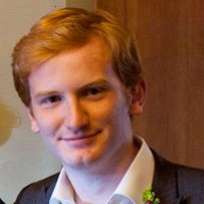The Recontres inédites series is what makes the Verbier Festival famous among aficionados. The title translates – roughly – as “Unprecedented Meetings”, and that is certainly what the concerts represent: world-class soloists brought together on minimal but far from non-existent rehearsal time to play chamber music. While a programme change denied the audience a chance to hear pianists Evgeny Kissin and Daniil Trifonov back to back in unexpected repertoire, the roster here remained particularly starry: Trifonov, both Capuçon brothers, violinists Maxim Vengerov and Vilde Frang, violist Yuri Bashmet, cellist Mischa Maisky, and, replacing Kissin, pianist Itamar Golan. It’s a very hit-and-miss formula, with the sublime rather less inevitable than clashing personalities and general slackness. Sometimes, though, it comes off, and sometimes it did here.
Dvořák’s massive Piano Quintet no. 2 received the less convincing performance from the Capuçons, Frang, Bashmet and Trifonov. Or rather, it received a thrilling performance from Trifonov and a somewhat lackadaisical one from the strings, Bashmet especially seeming rather disinterested, and sounding very thin of tone. Even in this unusual chamber setting one saw the potential of Trifonov, and the instant comparison one made was to Martha Argerich – high praise indeed. Hair-trigger impetuosity vied with phrases floated like one of the paragliders filling this resort’s skies. His poise in the Furiant sections of the scherzo contrasted sharply with spirited attack elsewhere, while his opening lines in the first movement, marrying delicacy and sweetness with a barely concealed darkness underneath, might have surpassed the insights of an artist three times his age. For the most part, Trifonov’s rhythmic insistence – and yet his nuance! – kept an otherwise wayward performance together. Certainly there was intensity from the Capuçons and Frang, and the aggression from the violinists suited the vigour of Dvořák’s developmental style, but from this performance one might have imagined that this is not some of Dvořák’s most flowing music, which is not the case. The “Dumka” slow movement, although started beautifully by Trifonov, particularly suffered from the lack of structural security on show, which made an odd contrast with the complete technical command of playing generally.
Tchaikovsky’s Piano Trio replaced the promised Schubert for the second half, and Itamar Golan took on this work’s huge pianistic challenge rather than Kissin. A chamber work this may be, but its fistfuls of notes and quickfire changes of mood take the piano part beyond any of Tchaikovsky’s piano works, and perhaps even his concertos. While Golan certainly had technical capability to spare, and brought attack and volume to his part, a lifelessness of phrasing, dullness of tone, and rhythmic uncertainty prevented this performance from reaching the rarefied heights the impassioned string playing of Vengerov and Maisky otherwise promised. This piece was written in memory of Nikolai Rubinstein, a musician and close friend of Tchaikovsky, and is bookended by the same funereal theme, dragged out here in unison Vengerov and Maisky with bows wrenching sound from the strings. Beyond his famously rich tone, Vengerov, recently returned to the concert stage, has that great quality of violinists of old, playing beyond idiomatically, making the music come to him without ever making it seem unnatural. Maisky, too, inhabited this music, and the pair matched their tones with the minimum of fuss, yet retained a degree of individuality. The long second movement – well over 20 minutes – lacked shape among and between its variations, but the concluding variation brought welcome energy, and the reappearance of the trio’s opening material, now in march form but with unison strings playing long, drawn-out notes, brought the very best from Vengerov and Maisky in a towering emotional drama. In this hit-and-miss game, those few final minutes redeemed a great deal.


